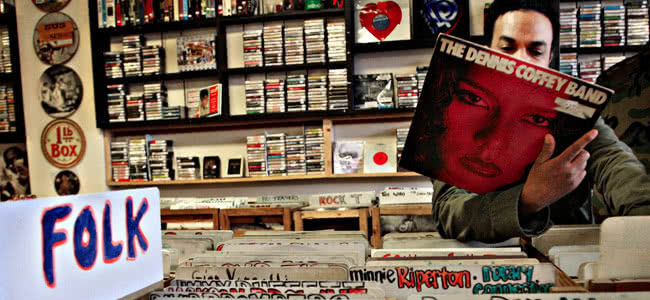A quiet seaside record store has followed suit in the trend of music retailers facing financial hardships, closing its doors to the public in another sad day for lovers of physical music product. However, unlike other struggling record stores, this particular shop has experienced a booming trade, just not in records or CDs…
Underground Music in Tweed Heads, just south of the Queensland border, was targeted by authorities in a sting which uncovered almost a decade of drug related transactions, with an estimated turnaround of over $6 million dollars.
Owner of the establishment, Lee Charles, has admitted his record store was a major tool in selling substances such as marijuana and ecstasy.
Packages would arrive in bags, boxes and suitcases, which Charles would then deliver to clients for a cut of the profits, using the business as a drug storage facility. While selling records and CDs from the front-end of the store, the back-end was being used to offload cannabis, pills, and wholesale music ‘enhancers’.
To avoid obvious detection, Charles sold the cannabis in pages ripped from a phone book as it was less obvious than the traditional foil wrap.
Underground Music closed in 2007, however Charles continued trading from home. With physical music sales on the decline in recent years, Charles opted to generate cash from an illicit source, instead of developing his already existing record store business.“I sold to skaters, mums and all sorts of people,”
An offer first proposed to him by local dealer George Kalaja, the main target of the police operation, who first handed over a pound of marijuana to the Underground Music proprietor back in 2003. A “plastic shopping bag” of “shit quality” weed, according to Charles, who took the $3,000 package because he thought Kalaja “was the mafia” and didn’t want to get on his bad side.
Love Eminem?
Get the latest Eminem news, features, updates and giveaways straight to your inbox Learn more
After being arrested, Charles, in a report from AdelaideNow, opened up on the operation, revealing some of the customers that often approached the store in search of drugs.
“I sold to skaters, mums and all sorts of people,” Charles says in an affidavit lodged in Supreme Court confiscation proceedings against his supplier.
A naive Charles also explained the theory behind using the store as a front for his operation: “I thought it was safer to sell weed from my shop as I thought the police would be less likely to raid a shop than a house.”
Perhaps a record store was not the wisest choice of drug trafficking location, as many others have learned in the past…
Interscope records, home to artists such as U2, Lady Gaga, and Eminem, shared a similar fate last year, when traffickers used the label’s resources and equipment cases to send cocaine from Los Angeles to New York, with the cases stuffed with cash on the return trip.
A year-long investigation uncovered shipping records by a cargo firm that was used to transport the cases, which would hide either cocaine or the proceeds from sales. The activity was hidden from scrutiny due to legitimate use of road cases by some of the label’s artists when they hit the road on tour.
Sex, drugs, ‘n rock n roll indeed.




































